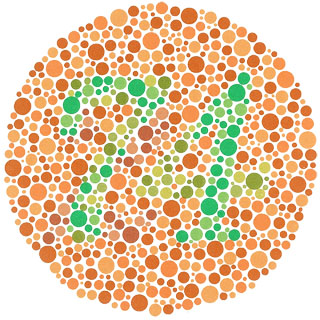
When I write a blog post about something I’m not an expert on, which is pretty much everything I write about, I usually Google the hell out of it first to (a) make sure I don’t say something stupid, (b) get some ideas I can build on to make myself seem smarter, and (c) avoid writing something that someone else already said.
But sometimes I don’t bother to research the things I’m writing about. I may deliberately avoid spending time looking at what others have said about something before I go ahead and bloviate on the subject myself. Sometimes, I’m essentially blogging blind.
Besides laziness, why would I want to deliberately avoid the benefits of expressing an informed opinion? Well, this ignorance allows me to explore the idea in a little bit of a vacuum, to see where the idea takes me without the influence of other people’s thinking, however clever they may be.
But more importantly, I think, I will sometimes keep my head in the sand simply to avoid the discouragement that I am prone to once I realize that something I may have thought was quite clever has actually been explored by others already.
This is, I think, a key to innovation — making sure you are well-informed about prior art without ever throwing up your hands because of some misbegotten fear that it’s all been done before.
Comments
7 responses to “Innovation Through Ignorance”
jeesh, chris, i wrote the same thing years ago. is your head in the sand or something? 😉
@sean coon: And of course the first thing that came to my mind reading your comment was I wanted to click a link to read your prior art.
For another viewpoint: I started out in college convinced that I wanted to do physics research. It’s a whole bunch of fun. But (at least at MIT) there’s a constant undercurrent of insecurity–and commensurately, pressure–to be “original.” In general, I think that this is a pressure most creative “professionals” feel. Much in the same way that there’s a pressure to be smart or, well, creative. People feel like they don’t have control over these allegedly intrinsic qualities. And whenever I thought of a neat idea or question, I’d Google it to find that plenty of people had already come up with it or addressed it. This isn’t to say that there wasn’t room for doing more, but it was a strangely constant experience.
But, then I got disillusioned with school, took a year off, and came back fired up to revolutionize education. And it turns out that there are lots of problems (like education) in which people have done good thinking for hundreds of years, but the real issue is to come up with creative solutions to their implementation and do the hard work involved in doing this.
It was a refreshing change, to have the pressure shift from originality to creativity or competence. . .And now, when I learn and think about physics or math in my spare time, I get a lot of pleasure out of asking good questions, as opposed to objectively original ones. . .
Just a thought!
@Alec Resnick: I can imagine that physics must be pretty tough and often discouraging in that regard. Business people with new product or service ideas run into it all the time, and of course artists, writers, and musicians can never escape “the anxiety of influence”. And, just as you described, the real challenge is to be creative with the details and to work hard. I have no problem with either.
I wouldn’t want to be negatively affected by this ‘anxiety of influence’. If anything, seeing what others have done before you can reaffirm what you believed to be right – or alternately confirm that the direction you were headed ended up in a place you didn’t want to go.
It can even inspire a ‘lightbulb moment’ – where something suddenly clicks and you instantly know where to go with the project/post/whatever.
Originality is tough. But, you can still aspire to be different by taking a more obscure path.
Take your blog. It has all of the elements of a blog – comments, archives and of course the contact/about information. What you’re writing about is roughly the same as most design/tech blogs.
But the concept of designing a site around graph paper – now that’s different. Sure, graph paper has been around for years, but in this website, it’s something completely unexpected. And it works very well.
ideasonideas.com builds on this theme (though it is very different in it’s own right).
sorry, i was playing with an ironic supposition in my last comment, chris. i agree with your premise — as does probably every other designer who’s had a business person sketch out an interface in powerpoint and say, “make this.”
my response is usually, “actually, how about you just tell me *what* your objectives are and *what* it needs to do; i’ll do my job and make the *how* it does it through a bunch of interfaces a reality.
it’s a stab at keeping innovation a possibility.
a blog should be a spot where you can throw ideas around without putting together a focus group first. i see research in action all day; it’s nice to see some gut thinking once in a while.
@sean coon: Oh, I knew that! I was noticing just how instinctual my need is to be original. It’s an urge.